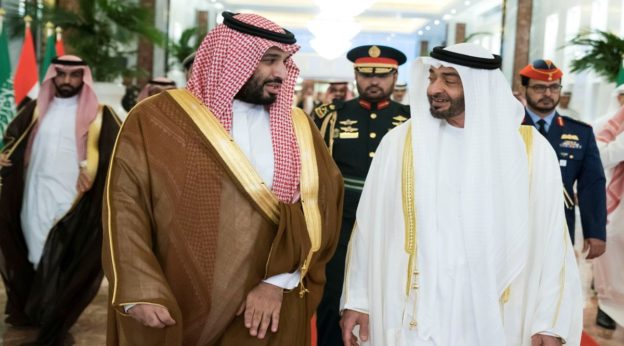“As the world order changes the Gulf countries would like to keep their options open and not be simply dictated by any super power”, Ambassador Anil Trigunayat tells Financial Express Online.
Russia-Ukraine conflict will have exceptional consequences for the global order including in West Asia.
“As the world order changes the Gulf countries would like to keep their options open and not be simply dictated by any super power”, Ambassador Anil Trigunayat tells Financial Express Online.
The story so far
The crude has already breached USD 130 per barrel for the first time in 14 years and this is expected to touch almost USD 150 per barrel or more. And the only countries which help control the rising price are OPEC members, United Arab Emirates and Saudi Arabia. However, this time, leaders of both the countries have decided to opt out from helping the US in controlling the price of the crude shooting up. Both countries have refused to pump more oil at the request of the US and have stated that they are sticking to the production plan approved by the OPEC.
Information available in the public domain indicates that Russia pumps about 10 percent of the world’s oil and is an OPEC+ member.
According to a report in Wall Street Journal on Wednesday (March 9, 2022), Saudi Crown Prince Mohammed bin Salman (MBS) and the UAE Sheikh Mohammed bin Zayed al Nahyan (MBZ) dismissed overtures made by the US administration for a phone call with President Joe Biden.
The report indicates that the US administration was trying to connect with the two leaders of the Gulf region to urge them to loosen their oil taps and “stabilize” the markets.
The US hoped that the Arabs would also displace Russia from its position of energy supply leverage, like the other western countries. A delegation from the US was recently in Caracas, Venezuela to discuss many issues including “energy security.’’
What upset the UAE & Saudi Arabia?
When the Biden administration came into office, several things happened which were not acceptable to Saudi Arabia and UAE: firstly, MBS was dragged on journalist Jamal Khashoggi’s murder; withdrawing its support for Saudi Arabia and the UAE in the Yemen war which according to reports is Iran-backed Houthi rebels; negotiating with Iran for a new nuclear deal which has reached the final stages; and Qatar was granted the status of a major non-NATO ally. The other two countries which are non-NATO allies in the region are Kuwait and Bahrain.
UAE cancels F-35 fighters’ deal
The deal UAE signed with the US for F-35 fighter jets under the Trump Administration after the historic Abraham Accord too was affected when the new administration had decided to relook at the terms of the sale. Following this, according to media reports, the UAE had decided to cancel that deal and later bought 80 Rafale fighter jets from France in a deal worth USD 19 billion.
Expert View
Sharing his views with Financial Express online, Ambassador Anil Trigunayat is former envoy of India to Jordan, Libya and Malta, says, “I believe that seeing the US arrogance, disinterest and insensitivities to their security and well being major Gulf Cooperation Council (GCC) countries appear to be calibrating their stance through a partial strategic autonomy.”
Therefore, in his opinion, “The reports that Saudi and UAE crown princes have not shown great alacrity to take President Biden’s call are indicative of their disenchantment. They however spoke with Russian President Vladimir Putin as they wait for the eventual outcome of the conflict and sanctions against Russia and stick to their position on OPEC + production levels.”
“When MBS said that he did not care what Americans thought about him or when UAE abstained at United Nations Security Council (UNSC) speak volumes about the grudges they hold ranging from revival of the Joint Comprehensive Plan of Action (JCPOA), cancelation of arms and equipments and F-35 fighter jets, criticism on human rights, or for that matter inadequate response to the Houthi attacks and threats from Yemen,” the former envoy observes.
According to him, “Similarly their efforts to normalize ties with Syria and participate in reconstruction there are confronted by unilateral Caesar’s Act. Placing greater US trust on its sole and most recent non-Nato ally might be yet another grudge as most countries in the past have vied for US attention and affection for long. No longer so.”
And, last but not the least, “The Oil crisis will fill and replenish their coffers too,” Amb Anil Trigunayat adds.
https://www.financialexpress.com/defence/ukraine-russia-conflict-spells-change-in-the-world-order-saudi-arabia-uae-keep-their-options-open/2456988/





